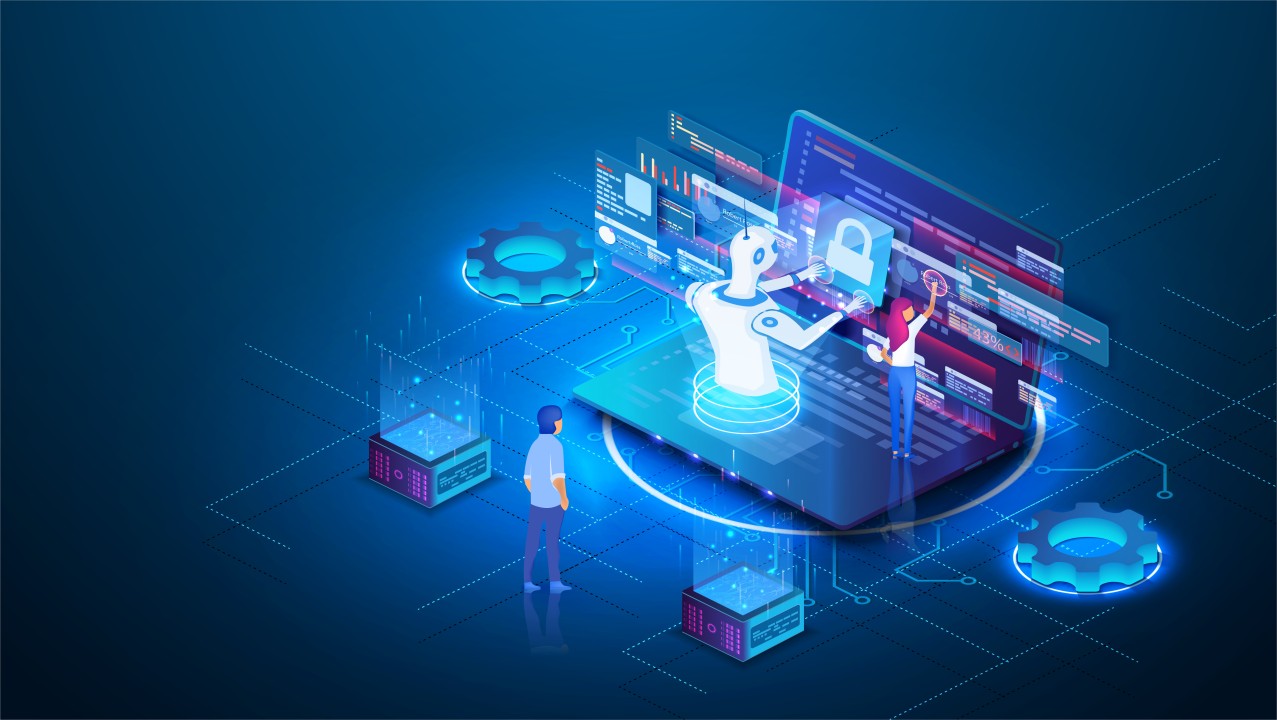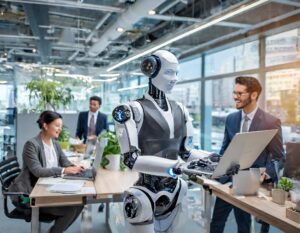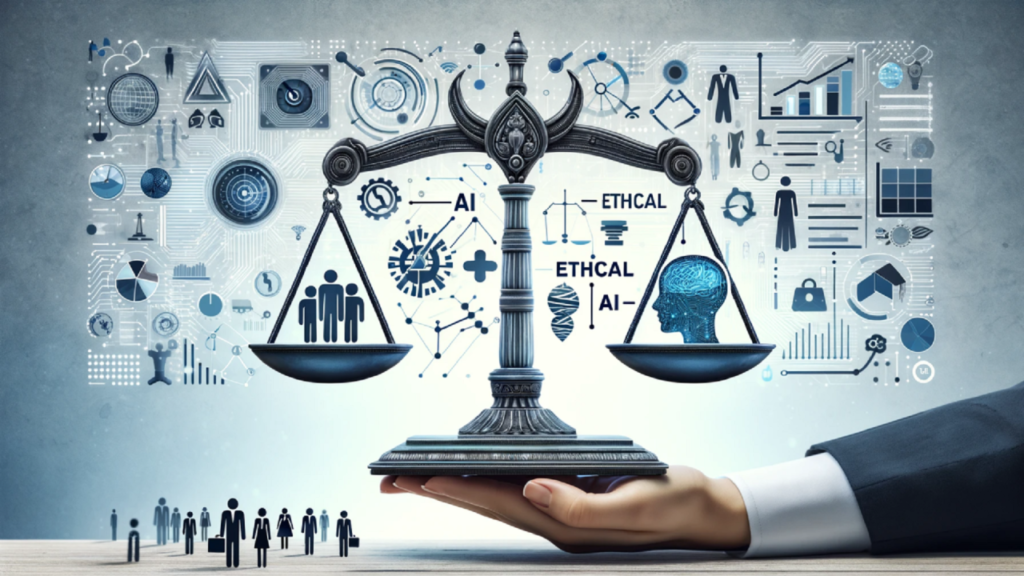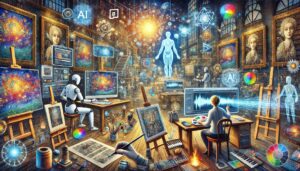
“The Future of Intelligence: How AI is Changing the World 2025”

The world of technology is evolving at an unprecedented rate, and at the heart of this revolution is Artificial Intelligence (AI). Once a concept confined to the pages of science fiction, AI is now an integral part of our daily lives, quietly shaping industries, businesses, and even how we interact with the world.
From self-driving cars to personalized recommendations on streaming platforms, AI’s influence is already profound. But what does the future hold? How is AI truly changing the world, and how will it continue to evolve? Let’s take a deeper look into the role of AI in shaping our future.
1. AI in Everyday Life: The Silent Revolution

It’s easy to take Artificial intelligence for granted. Many of us interact with it every day without even thinking about it. Have you ever asked Siri for directions or asked Alexa to play your favorite song? That’s Artificial intelligence at work.
But Artificial intelligence goes beyond just voice assistants. It’s behind the algorithms that power social media feeds, the recommendation engines of Netflix and Spotify, and even the smart devices in our homes. While these might seem like small conveniences, they’re part of a larger trend where Artificial intelligence is seamlessly integrated into our lives, making tasks easier, faster, and more personalized.
2. Transforming Industries: From Healthcare to Finance

Artificial intelligence impact isn’t limited to consumer tech—it’s also revolutionizing industries. In healthcare, Artificial intelligence is helping doctors diagnose diseases more accurately, analyze medical images, and even discover new drugs. Machine learning models can sift through vast amounts of medical data to detect patterns that humans might miss, leading to earlier diagnoses and more effective treatments.
In finance, Artificial intelligence algorithms help detect fraud, analyze stock market trends, and automate trading. Banks are using AI to improve customer service through chatbots and personalized financial advice. Similarly, AI-powered automation is transforming industries like manufacturing, logistics, and agriculture, reducing costs and increasing efficiency.
3. Self-Driving Cars: The Road Ahead

One of the most exciting—and controversial—applications of AI is in autonomous vehicles. Companies like Tesla, Waymo, and others are racing to develop self-driving cars that could revolutionize transportation. These cars use AI to interpret data from sensors and cameras, make real-time decisions, and navigate the roads with little to no human intervention.
While we’re not quite there yet, the future of transportation is undoubtedly leaning toward AI-powered vehicles. The possibilities range from reducing accidents caused by human error to providing mobility solutions for those who can’t drive. However, there are also challenges to address, including safety concerns, regulatory hurdles, and ethical dilemmas related to decision-making in autonomous driving.
4. The Workforce of the Future: Will AI Replace Jobs?

One of the most debated topics surrounding AI is its potential impact on jobs. On one hand, AI has the potential to automate repetitive tasks and improve productivity, freeing up humans for more creative and strategic work. On the other hand, many fear that AI and automation will lead to widespread job losses, especially in sectors like manufacturing, retail, and customer service.
The reality likely lies somewhere in between. While certain jobs may disappear, new roles are also emerging in AI development, data science, and robot maintenance. The key challenge will be ensuring that the workforce is prepared for these changes through education, retraining, and reskilling programs.
5. The Ethics of AI: Navigating the Challenges

As AI becomes more powerful, ethical concerns are gaining attention. From privacy issues surrounding data collection to biases in AI algorithms, there are many ethical questions to address. For example, AI systems used in hiring processes, law enforcement, or credit scoring can perpetuate human biases if not carefully monitored and corrected.
Furthermore, as AI becomes increasingly capable, questions about control and responsibility arise. Who is accountable when an AI system makes a harmful decision? How can we ensure that AI is used for good and doesn’t reinforce inequality or harm vulnerable populations?
6. Looking Ahead: The AI Future

As AI continues to evolve, the possibilities seem endless. We’re entering an era where machines will not only assist us but also collaborate with us in ways we’ve never imagined before. From creative AI that can paint and compose music to machines that can predict climate change patterns and even help in space exploration, the future of AI is both exciting and, at times, daunting.
But with great power comes great responsibility. As we integrate AI into more aspects of our lives, it’s crucial that we navigate these advancements thoughtfully and ethically. The future of AI is ours to shape, and it’s up to us to ensure it’s a future that benefits all of humanity.
Khazan’s Rise
AI in Creativity and the Arts: A New Era of Innovation

Artificial Intelligence (AI) has made an undeniable impact on nearly every aspect of our world, and the realm of creativity and the arts is no exception. As AI technologies continue to evolve, they are not just tools for automation or problem-solving; they are becoming collaborators in the creative process itself. From music and literature to visual arts and gaming, AI is unlocking new possibilities for artists and creators, enabling them to explore uncharted territories and enhance their work in ways previously unimaginable. In this blog, we will dive into how AI is reshaping creativity in two key areas: Generative AI and AI in Gaming and Entertainment.






